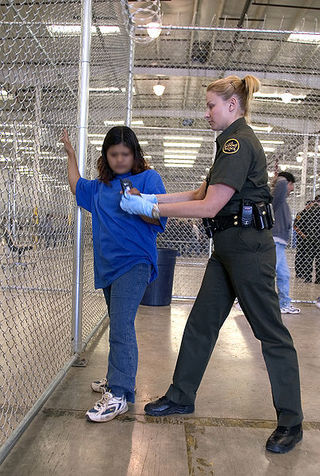Health
How Lawyers and Psychologists Are Helping Immigrant Children
Pro bono lawyers and trained counselors can help traumatized children recover.
Posted December 7, 2016

Update: May 29, 2018 -- As the media reports that some 1,475 children are missing, taken from parents at the US-Mexican border, there is a new campaign on social media #WhereAretheChihldren. The original story about the need for help follows:
At the swearing in ceremony for new lawyers, applause for our children filled Fanueil Hall. Then Maura S. Doyle, clerk of the Supreme Judicial Court for Suffolk County, brought us to a reflective moment as she talked of the need for pro bono work. In many ways, pro bono is an expression of gratitude, offering professional skills to people who cannot afford to pay.
Her words seemed to resonate as I read the commentary by David Lash in "Above the Law" making a plea for pro bono attorneys to help vulnerable immigrant families.
His concerns about families are echoed in the mental health community. Researchers are telling us of the serious issues for victimized children who are exhibiting symptoms of post traumatic stress disorders.
Contrary to the pejorative depiction of immigrants by the president-elect, Attorney Lash reminded us:
"They are not dangerous felons, rather they are terrified children, mothers, and families who were assaulted, left widowed and orphaned by brutal violence, raped, extorted, kidnapped, threatened in countries where law enforcement was either unable or unwilling to help them. They risked their lives to escape, enduring horror on a journey with no certain outcome. Many are children, fleeing alone. . .”
According to the American Psychological Association's "Helping immigrant children heal," by Lorna Collier, the safe haven that these children sought too often became a nightmare:
“They endured unheated facilities, limited food and water, and lack of access to bathrooms and showers. Some have reported being abused physically and sexually by facility personnel (a complaint was filed in June 2014 by the American Civil Liberties Union on behalf of 116 unaccompanied immigrant children).”
Just this past week a federal judge ordered the release of 400 detainees -- mothers and children -- because of conditions in Texas unsuitable for children.
Children who cross the border alone face a dual hardship. They are emotionally affected and legally compromised. However, Tiffany Andrade, a Boston immigration attorney, explained that "many clients will attend interviews with a psychologist, who then writes a detailed affidavit concerning any issues the child/client faces."
As a practicing immigration attorney, she said, "It is important to build a rapport with clients, whether they are children or adults, especially since many fled their countries due to rape, domestic, and gang violence," adding:
"However, with children, it is even more challenging. If a child enters the United States without a parent or guardian, or without proper identity documentation, it can be difficult to obtain original documents or to contact a parent or guardian. If there is any good news, we know that many children may qualify for special benefits leading to legal status in the United States. It can take time. And when dealing with children, it is important to assure them that we have their best interests in mind and are doing everything possible to assist them."
With institution of the "rocket docket” there is an even greater problem. Stanford Law School reports that this practice, instituted by the Department of Justice to handle an increased caseload, means that individual cases are heard by a judge or tribunal. The problem, as defined by the Stanford Immigrants’ Rights Clinic, is that courtrooms are filled with children facing deportation who are typically without legal representation. /Rocket docket
Funding for legal and psychological services
The vital need for legal and psychological service funding appears to overlap with services required that range from freeing children from detention centers to helping them within their schools and community. Attorney Lash says:
“The efforts of the private bar to provide support can go only as far as the shoulders of the legal aid community can carry them. Pro bono volunteers need to be trained. Critically, they need to be supervised and mentored by expert practitioners. Cases need to be screened and evaluated by experienced immigration attorneys.”
From the psychological perspective, the APA article tells us of the need for funding “both for schools and school-based services as well as for direct immigrant services.” In California, the National Latina/o Psychological Association is developing detention center guidelines to help unaccompanied minors. And the Robert Wood Johnson Foundation has launched "Caring Across Communities: Addressing Mental Health Needs of Diverse Children and Youth."
Looking at the hardships that immigrant families and children face, it seems that a cadre of volunteers can also fill a role within the legal and the mental health communities. Putting aside the name-calling that took place prior to the election, it is time to work for a unified goal -- helping children feel the safety and security of a place to call home.
Copyright 2016 Rita Watson
References
Above the Law, David A. Lash, December 1, 2016, The critical need for pro bono immigration work. http://abovethelaw.com/2016/12/the-critical-need-for-pro-bono-immigration-work/ He is managing counsel for Pro Bono and Public Interest Services at O’Melveny & Myers LLP in California
American Psychological Association, Lorna Collier, March 2015, 015, Vol 46, No. 3. Helping immigrant children heal. http://www.apa.org/monitor/2015/03/immigrant-children.aspx




